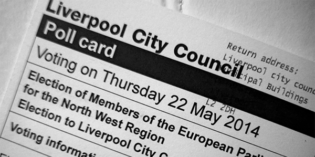political parties

Do electoral results come as a surprise because our empirical models are limited?
Recent elections in many European countries have seemed less predictable, as party systems fragment and new parties challenge the established ones on a range of issues. Looking at the recent case of Finland, Zhen Im, Hanna Wass, Heikki Hiilamo and Timo Kauppinen argue that political scientists need to develop new models for mapping multiple, changing issues for electoral competition.

How not to recruit postal voters in the UK
Joshua Townsley and Stuart Turnbull-Dugarte tested the ability of parties to recruit postal voters in a field experiment carried out during the 2018 local elections in London. The result? Sending personal letters persuading voters to become postal voters is not an effective recruitment technique.

Economic voting and party positions: when and how wealth matters for the vote
Does the ownership of economic assets matter for how people vote? Drawing on new research, Timothy Hellwig and Ian McAllister find the answer is yes. They argue that by changing their policy positions, parties can shape the influence of asset ownership on voter decisions, if there is sufficient party polarisation.

What will life be like in the Commons for the Independent Group?
On 18 February, seven Labour MPs resigned from the Party to sit as an independent group. Operating without the formal support of a parliamentary party, they will face several institutional barriers to working effectively in the House of Commons, writes Louise Thompson.

Are there any benefits to divided parliamentary parties?
Intra-party dissent is generally considered a bad thing – for parties seeking power and for voters wishing to make sense of political conflicts. However, using a survey experiment to test people’s responses to different forms of intra-party policy disputes, Eric Merkley finds that there are circumstances in which voters find moderate divisions useful as cues for evaluating policy choices in light of their own preferences.

The ‘hourglass’ pattern of representation: why political parties are key to electing more women to parliament
The underrepresentation of women in politics is often portrayed as a pyramid, with the main problem identified as too few at the top. However, research by Ulrik Kjær and Karina Kosiara-Pedersen, shows that, in the case of Denmark, it follows an hourglass pattern, with underrepresentation worst at the intermediary stages of party membership and candidate identification. This suggests that party strategies for encouraging women to stand are important for improving representation.

Labour’s political calculations: explaining the party’s muddled policy on Brexit
Why is Jeremy Corbyn ignoring calls for a second referendum, despite these being backed by a substantial part of his party’s membership, as well as by non-members? Eric Shaw explains the factors affecting Labour’s inability to agree on a clear and feasible Brexit policy, and warns that inevitably divisive decisions will have to be taken.

What party competition in England will look like after European Parliament elections end
European Parliament elections may not have been popular, but they used proportional representation – something which England’s national elections lack. Heinz Brandenburg looks at what this means for smaller parties, which have a hard time making headway under the first-past-the-post system.

When are Green parties successful?
In 2018 Green parties are experiencing unprecedented levels of success in several advanced democracies; however, in a great many others they remain only minor footnotes to national electoral contests. Zack P. Grant argues that variation in Green party support is largely a function of good economic times, the presence of tangible environmental disputes, and mainstream parties actively attempting to emulate the positions of the Greens on their core issues (though the latter is dependent upon the age of Green parties themselves).



 Democratic Audit's core funding is provided by the Joseph Rowntree Charitable Trust. Additional funding is provided by the London School of Economics.
Democratic Audit's core funding is provided by the Joseph Rowntree Charitable Trust. Additional funding is provided by the London School of Economics.